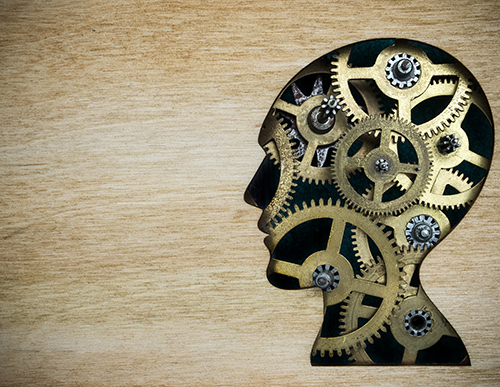Keeping our brains sharp and agile with age is a major priority. That’s why we play games that exercise the mind at astounding rates. These games provide us with security that our brains will continue to stay alert and functional, retaining the memories on which we strongly rely to enjoy our days.
But does the science really back up the hype? This has been the topic of research for many years and more recent studies haven’t shown the stellar results that initial tests seemed to promise. We don’t think that that’s because the games are useless. Ultimately, brain games may be a part of the solution, but there are other factors that we must consider as important determinants of how our minds and memories stand the test of time.
Research shows that one of these major factors is hearing. Let’s take a look at how your memory functions and why attending to your hearing is so important to keep that memory strong.
How does human memory work?
Human memory may seem simple, but it’s a whole-brain activity. In fact, unlike other mental functions, scientists can’t narrow memory storage down to one place in the brain.
Memories appear to be housed throughout the brain. Chemical and electrical signals that are made up of billions of neurons have trillions of connectors sending signals among them. In other words, memory is still a mystery to researchers.
But we’re not completely in the dark. We know that memory creation happens in 3 stages:
- Encoding
- Storage
- Retrieval
Encoding
Encoding happens first. It involves focusing on something in your environment. We encounter billions of stimuli each day so encoding helps us filter out the stuff that doesn’t matter so that we retain what does. If the brain tried to store all experiences, your brain would run out of room, likely in infancy.
Storage
Next encoded memories must be stored. You have a short-term memory and a long-term one.
Your short-term memory is very remarkable. It can hold, for about 25 seconds, approximately 7 bits of information. For those who train their brains, this ability can be extended. For example, mnemonic devices and chunking (sub-grouping information) will allow you to retain short-term memories much longer.
What happens to short-term memory after 25 seconds or so? It either dissipates because you don’t need it anymore or it transitions to long-term memory.
If you desire that something from the short-term become long-term then you need to do one or more of the following:
- Pay attention
- Repeat it
- Associate it with other things
You do this by:
- Intentionally focusing on what you want to store
- Exposing yourself repetitively, frequently, and over a period of time
- Associating the information with things you already remember
Retrieval
Finally, you must have a way to retrieve these memories after you store them. This is called retrieval. The better you handle the encoding process the easier memories will be to retrieve.
How does age impact memory?
The brain is very pliable. We call this nature “plasticity.” In other words, it can adapt and morph as a result of something affecting it. This is a good thing but can be bad as well.
Because the brain is so pliable, the brain loses cells and connections between cells that we aren’t using as much. This may even cause the brain to shrink with age. Over time, memory and cognition begin to suffer.
But, because of this same plasticity, we can build new connections by being lifelong learners. This strengthens memories and our minds. Studies show that exercising the brain can help you stay sharp up into your 80’s and sometimes beyond.
Not using it destroys the brain as we age, but staying mentally active will keep your brain healthier.
How does hearing loss impact memory
So what does hearing loss have to do with your memory?
From our above discussion, it’s not hard to see how studies support the importance of hearing. Your capability to store memories, for example, depends on how much you pay attention. If you can’t hear, it’s harder to pay close attention.
Let’s imagine you’re talking with your daughter in your living room. You may miss things she says. You don’t want to interrupt so you just keep listening. Your brain, in turn, is having trouble making connections because you’ve missed information. It can’t encode well. Then later, you can’t retrieve it because it didn’t encode well.
Secondly, because you only get part of it, you need to dedicate a part of your brain to figure out what she means based on what you do hear. This splits your focus so that you miss more information.
To make matters worse, if you can’t hear, your brain adapts in an inconvenient way. With less sound stimulating the brain, it thinks you don’t need that part of your brain anymore. Ability to process sound declines as the brainpower shifts to other areas.
Schedule a hearing test – Make better memories
As we’ve discussed, there’s no one clear solution, but research shows that challenging our brains with new learning and moving more can help. Improving your hearing should be among the tools you use to retain memory and cognitive function. Hearing aids enhance stimulation from sound to improve your encoding ability, especially during conversation. This improved stimulation helps those sections of the brain stay stronger. (See the research on how hearing aids help improve your memory here.)
So keep playing your brain games if you wish, but take care of your hearing. Schedule a hearing test today to keep your hearing and memory the best that they can be.



